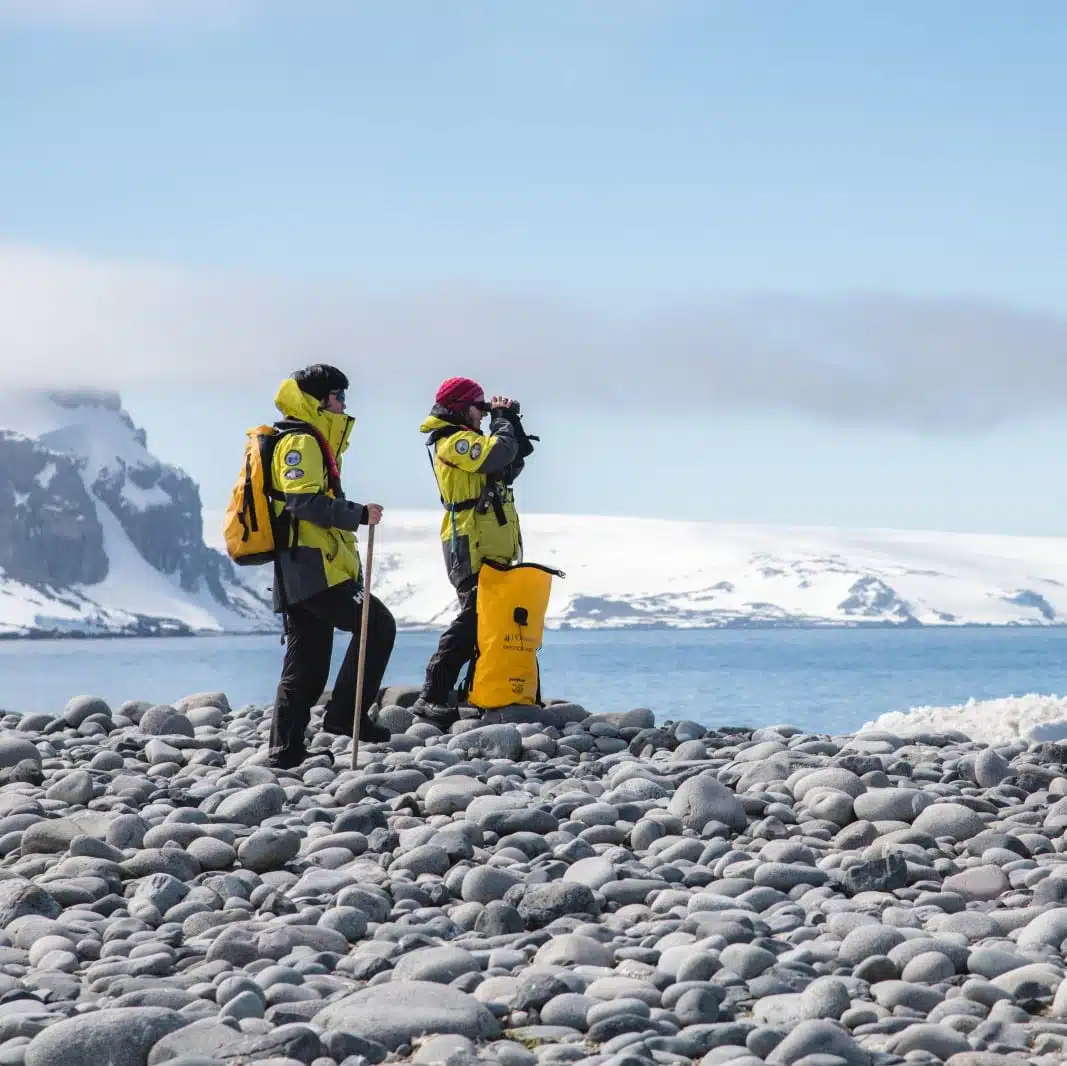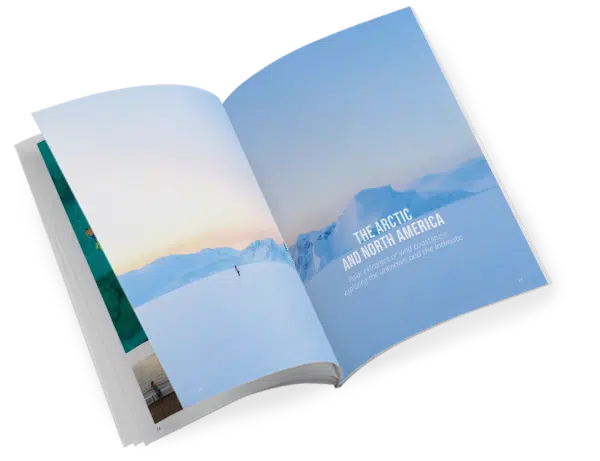A minimal and transitory impact through the application of strict protocols
In order to limit the impact of polar expedition, IAATO and AECO, two organisms dedicated to the protection of the polar regions, enforce strict protocols. The expedition teams of the polar expedition companies act as a guarantee that these good practices are applied and work to raise awareness amongst visitors about protecting the ecosystems. Nicolas Tolstoï, PONANT naturalist-guide, explains more about the different procedures put in place to ensure that the impact is both minimal and transitory.
How to manage impact on the environment when travelling in the polar regions?
Expeditions in polar environments are highly regulated. To keep the development of polar exploration tourism regulated and under control, cruise companies have come together in two associations, IAATO (the International Association of Antarctica Tour Operators) and AECO (the Association of Arctic Expedition Cruise Operators), These associations have been set up to ensure tour operators have the information they need about protecting, respecting and preventing damage to the environment, and that the internal regulations and the protocols dealing with safety and the supervision and management of people issued by these associations are properly followed.These associations provide logistical and legal help and support to cruise and tour operators, and carry out regular checks and controls.
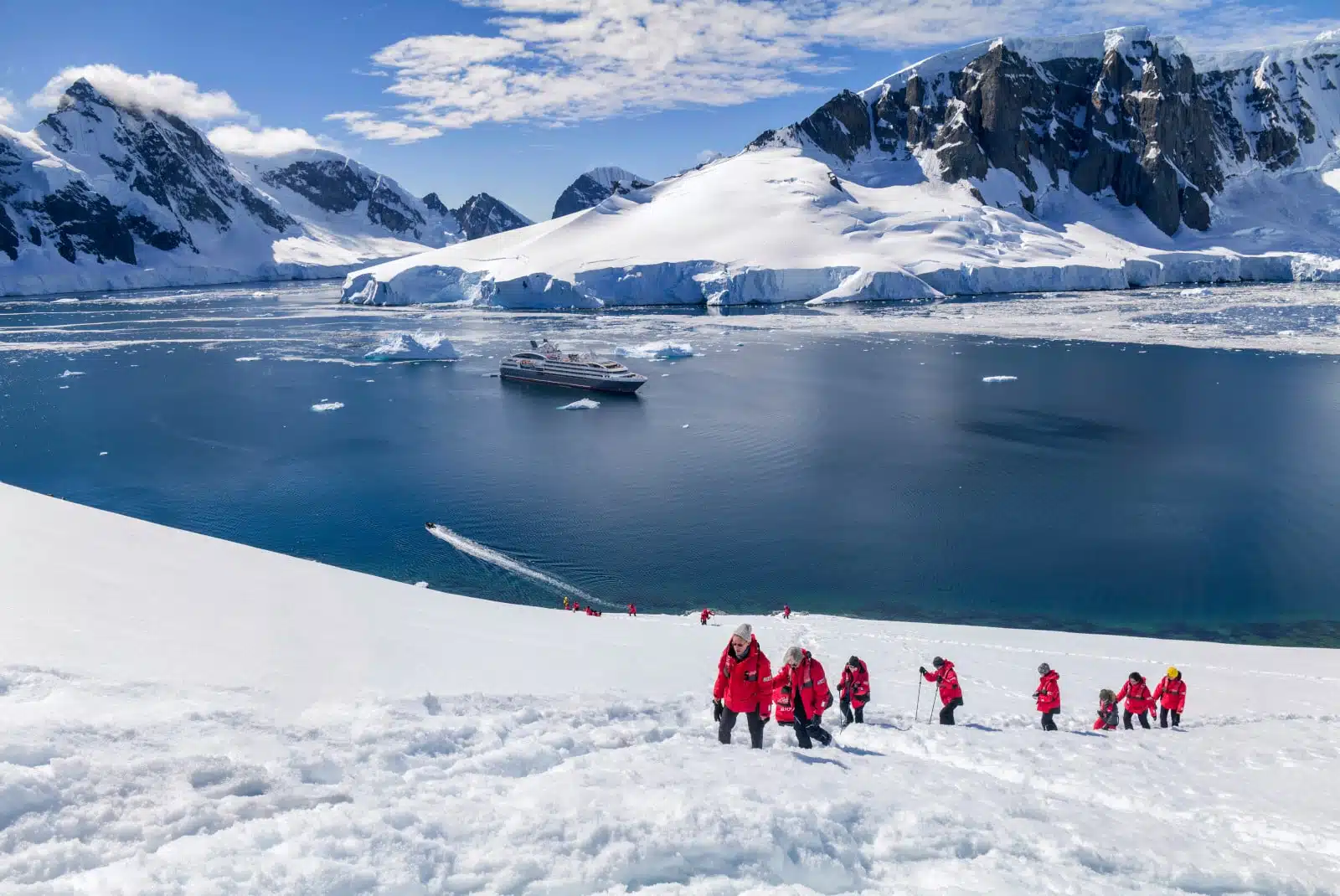
Which sites do these recommendations cover?
The recommendations apply as much to archaeological sites and natural sites as they do to certain villages. They may define, for example, the speed limits the ship has to observe in particular areas inhabited by whales, the maximum amount of light pollution allowed to prevent disturbance to wild bird populations, the minimum distance to keep from wildlife during onshore excursions, the number of passengers allowed to disembark to avoid damage to the sites and ensure the presence of people does not disturb the wildlife, and how waste is managed, etc. In both the Antarctic and the Arctic, visiting certain precisely defined areas is prohibited due to the land being the subject of scientific study and research.
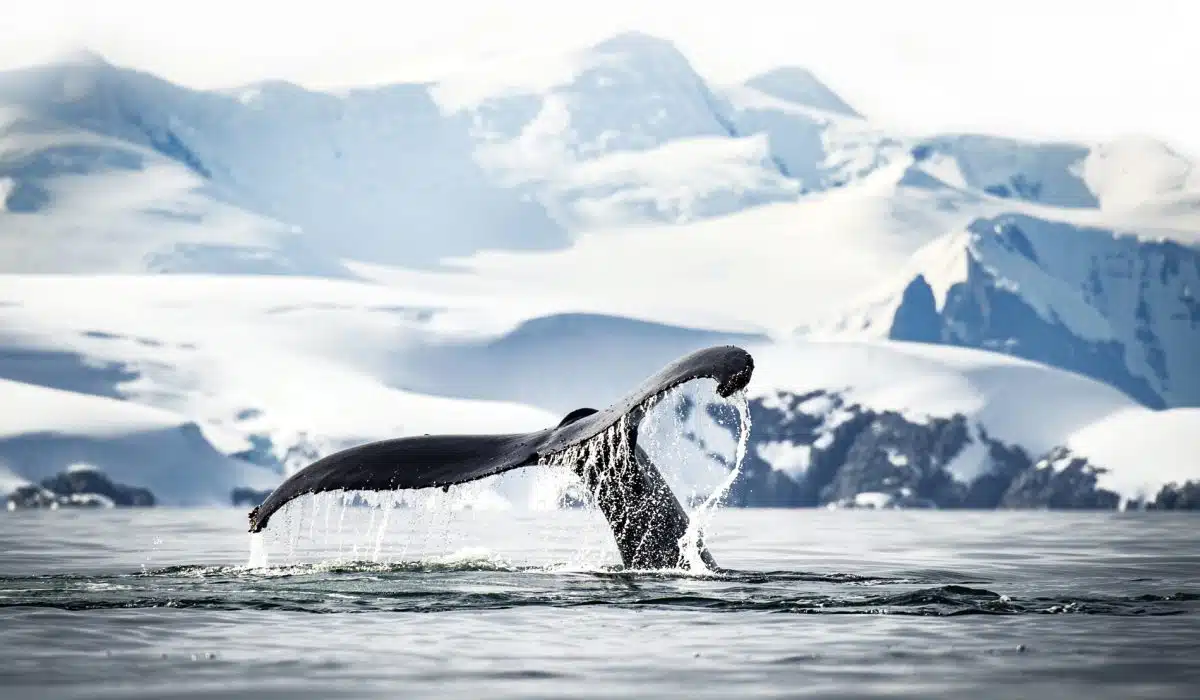
Do the expedition teams have to undergo any particular training?
Mandatory training is required to be a naturalist guide and expedition leader in the polar regions. They have to pass IAATO and AECO tests each year, and answer around 100 questions in modules covering all the topics concerned, such as wildlife, current environmental protection legislation, the number of passengers allowed at each site, prohibited areas, safety protocols, etc. To enable them to prepare for these tests and add to the core knowledge and expertise acquired through their professional experience, these associations make all the necessary information available to them through their websites, providing a kind of bible that all naturalists need to be familiar with. Mandatory certified training is also required for piloting a Zodiac inflatable, carrying firearms in the Arctic regions and providing first aid. Additionally, mandatory diplomas are also required for activities such as sea kayaking, scuba diving and snowshoe hiking.
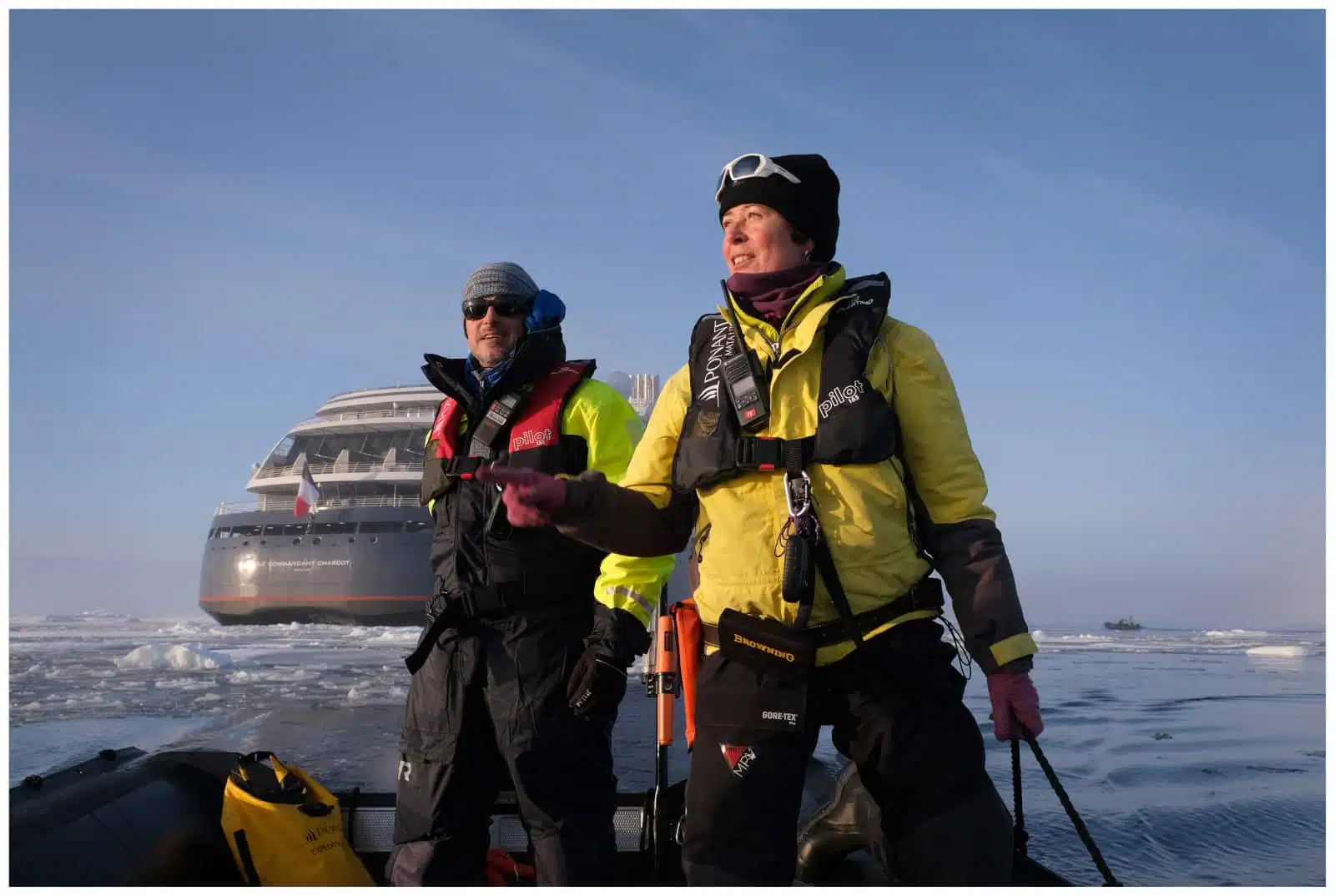
What does this all mean for the passengers?
The expedition and navigation teams serve as a guarantee that these good practices are adhered to and followed. Passengers must, above all else, comply with their instructions and follow the correct paths and trails, which are often indicated by flags. Prior to each disembarkation in the Antarctic, and increasingly in the Arctic too, a protocol designed to preserve the biosafety of fragile natural sites is put in place: passengers are required to decontaminate their boots and clothes to avoid introducing invasive species such as seeds, insects, fungi, mould, etc.
Studying the environment to better preserve it
Exploring the polar regions is a privilege and a unique opportunity to study the fauna, flora and evolution of the cryosphere. Polar expeditions offer scientists the opportunity to embark to further their knowledge and research or to validate some of their models. Passengers can also participate by sharing their observations in online databases.
Photo credits: © Studio PONANT / © Ian Dawson
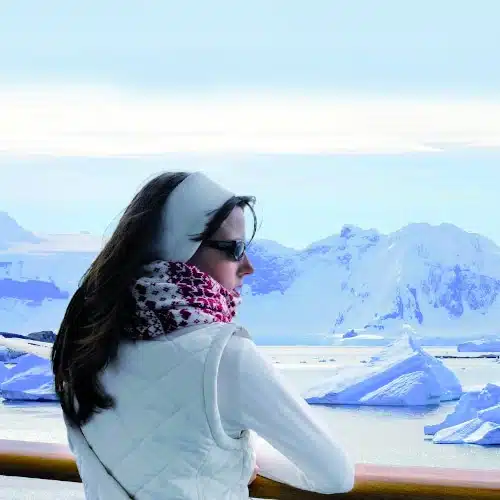
Give your voyage meaning
Embark for an eco-conscious polar expedition cruise

